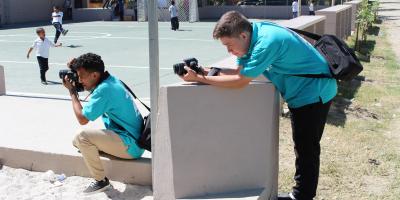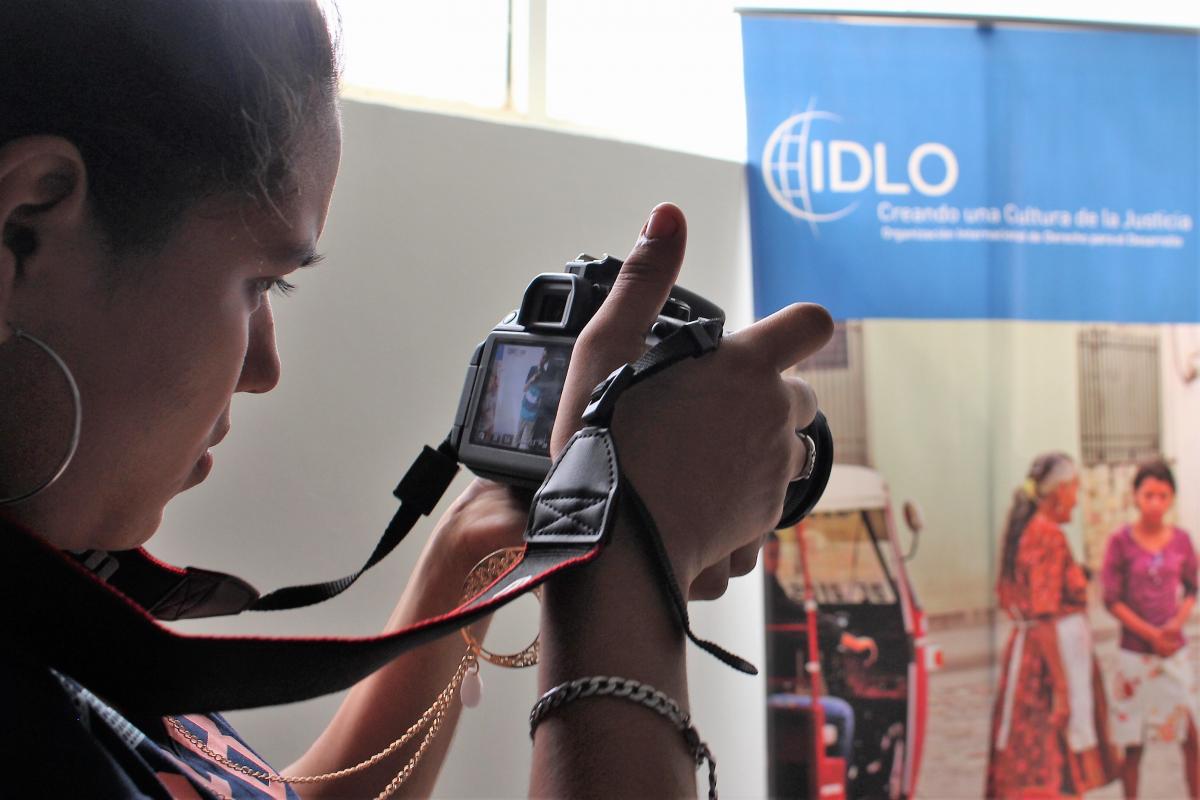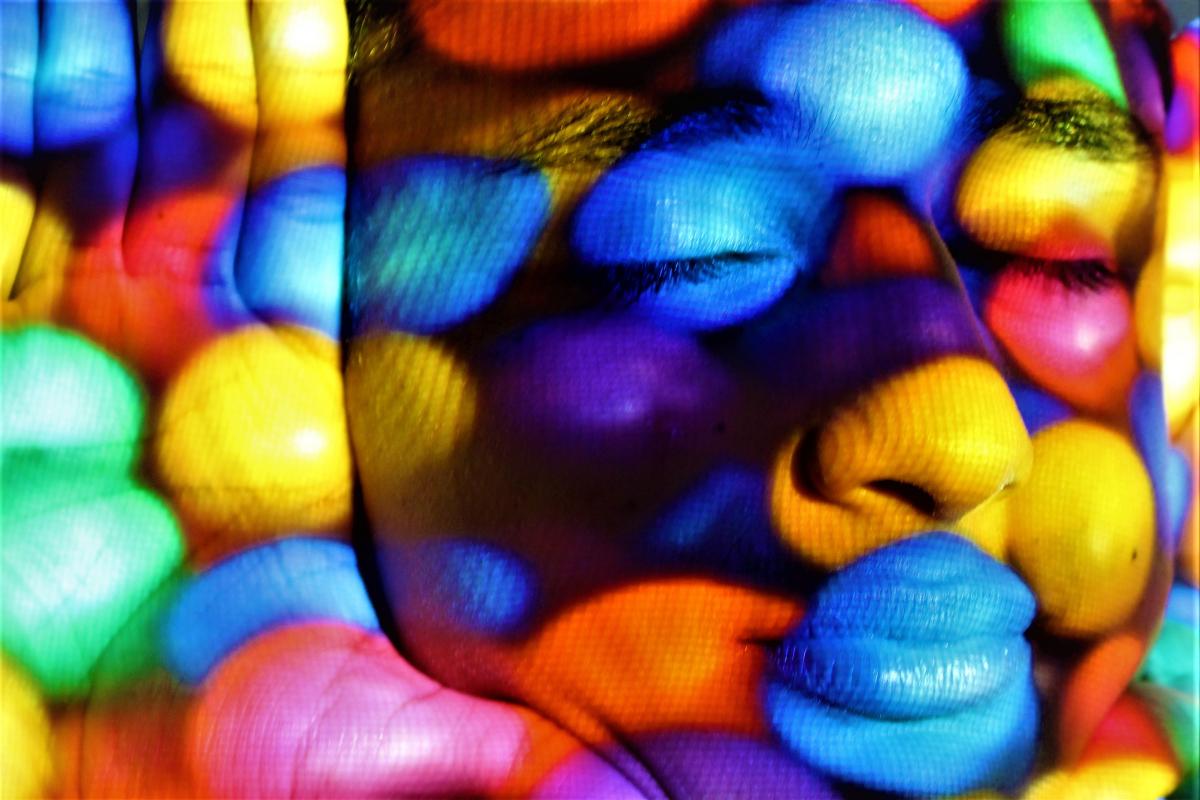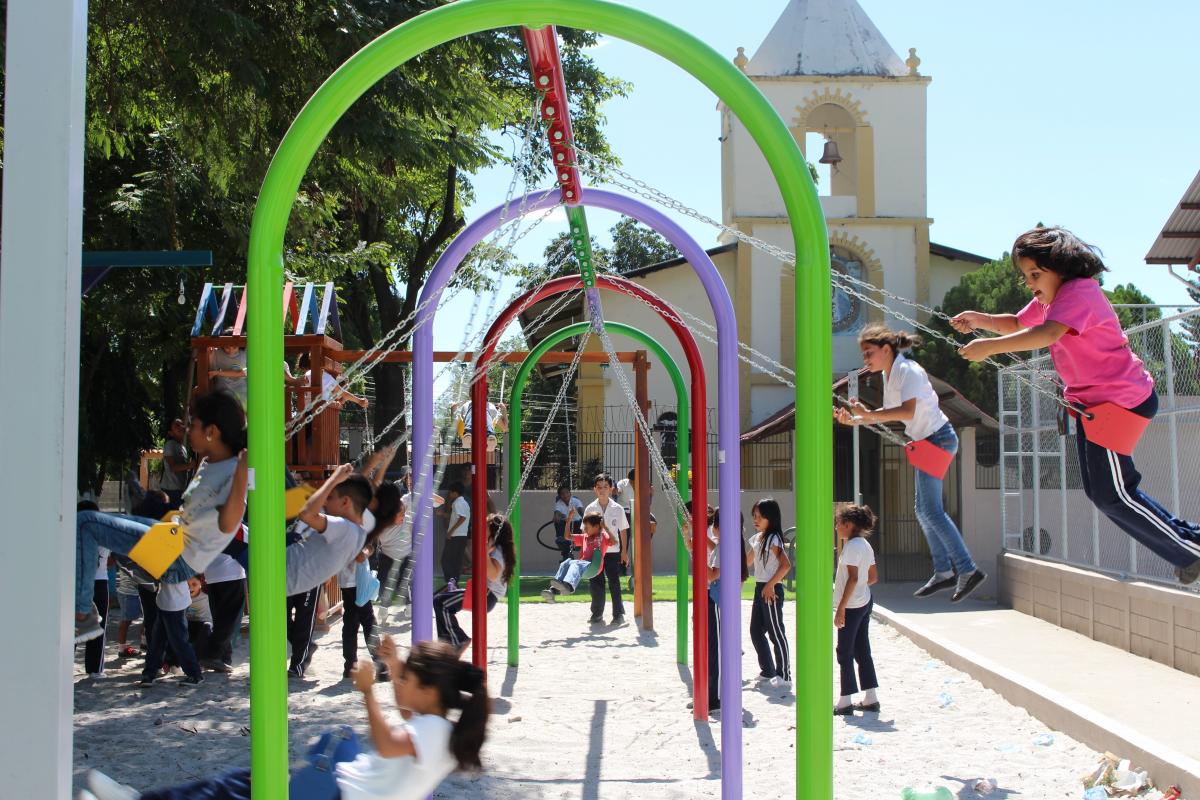
Languages: English, Español
"We live in our own community, imprisoned in our youth. We’re discriminated against by the place where we live, by our way of dressing, the way we talk. We are discriminated against, they see us as criminals," says José, a 24-year-old living in Honduras’ neighbourhood, Chamelecón.
The history of violence in this neighbourhood of San Pedro Sula, the economic hub of Honduras, has left a legacy of discrimination for those who have grown up in this area. With more than 200 thousand inhabitants, Chamelecón is home to women and men who must combat not only the violent reality of the country, but also against stigmatization.
Youth in parts of Chamelecón have been left with few opportunities and low employment prospects in an environment controlled by gangs and criminal groups.
José received courses in bakery and other trades, but has been unemployed for three years. "I no longer have hope. When we say that we are from Chamelecón and [people] immediately look at us differently."
Young people know that violence in their community is an obstacle that prevents them from advancing.
"Because we are young, people think that we are going to fail, that what we do is useless and will not work, and many times, I feel I am dismissed even when I am trying to do my best,” says Miguel, an 18-year-old who lives in Chamelecón with his father while his mother lives in the United States. “There is no hope in a place where there is much violence."
There is no hope in a place where there is much violence
|
Students apply what they've learned in the sessions by practicing photography |
Given the lack of opportunity, IDLO is working with a group of young people who have grown up in Chamelecón to enhance their knowledge about their rights and promote a path of inclusion and opportunities.
Under its program, Reducing Homicide through Access to Justice, funded by the United States Department of State, IDLO has been working in Honduras to reduce violence and improve access to justice for some of the most vulnerable populations including women, the elderly, persons with disabilities and youth. The program supports legal services, support centers, and seeks to build the capacity of justice sector officials, and it also includes community-based initiatives to engage marginalized groups.
Since April 2017, IDLO has been training a group of young people on access to justice through photography as part of its awareness-raising initiatives.
The name of the project, “Pixeles de VidaHN”, or “Pixels of Life”, encompasses the idea that there are millions of pixels in life, and, when combined, they show beauty.
The objective of the project is for these young people to have the opportunity to express themselves through this art, so they can feel that their voices are heard. Despite what their social reality can suggest, the students can visualize actions through photography that illustrate the good in their community for women, youth, the elderly and people who have a physical or mental disability.
Each month, the young people are trained to work with cameras. "Before I would have been afraid to use a camera like this. Now I feel that I can take photos without fear and that I have talent," commented one student, Jennifer, who is 19 years old.
The participants, aged between 18 and 25, seek to use photos to show some of their realities as well as positive actions that can help their community. This is the case for Jennifer, who wants her photos to emphasize the need for continuing education for adolescents who are already parents.
|
Students work in groups to plan and shoot their images |
The group has learned to capture moments and objects based on photographic compositions, allowing them to develop new perspective and a different style of observing life based on details and positive aspects that previously went unnoticed.
The training covers topics from artistic and social approaches to photography, and lessons are reinforced to the students through increased awareness of their rights, self-esteem, values, life lessons and the opportunity to express themselves. The students are also required to convey a message through the images they produce. Through teamwork, they begin by researching a theme and creating sketches prior to photographic production.
Another relevant aspect of the project is that students can work to build a positive image of the community so that the public can discover the potential of people living in Chamelecón. By engaging in this activity, youth are encouraged to envision a future for themselves that is free of violence, become agents of change in their communities, and empower others to do the same.
Just as IDLO has given us the opportunity to discover this talent, we would like to go and support others.
"We want to help other young people change the mentality they have, maybe they are thinking about maras or gangs, and we can focus and teach several things, and show the positive face of Chamelecón. Now we know we are talented young people and there are others like us, but they don’t know it because they haven’t had the opportunity. Just as IDLO has given us the opportunity to discover this talent we would like to go and support others," remarked José.
The training will conclude with a photographic exhibition in San Pedro Sula and the exhibition will receive international visibility. Students will receive a certificate from IDLO, and will be provided with support for contacts for new job opportunities or partnerships with various private enterprises and educational centers.
The photographs taken by the students can soon be viewed on IDLO’s social media channels.
Gallery: Click to see full-size images
“Vivimos presos en nuestra propia comunidad, presos en nuestra juventud. Somos discriminados por el lugar donde vivimos, por nuestra forma de vestir, nuestra forma de hablar. Nos discriminan, nos ven como delincuentes”, expresa José, un joven de 24 años de edad que vive en Chamelecón, San Pedro Sula.
El historial de actos violentos en este sector de la ciudad, capital económica de Honduras, ha dejado una herencia de discriminación a quienes han crecido en esta zona. Con más de 200 mil habitantes, Chamelecón es cuna de mujeres y hombres que para desarrollarse deben combatir no solo con la realidad del país, también contra la estigmatización.
Hay colonias en Chamelecón donde la juventud ha quedado con pocas oportunidades de desarrollo, respirando un ambiente que en las últimas décadas ha estado controlado por miembros de maras y pandillas.
José tiene tres años sin conseguir empleo, ha recibido cursos de panadería y otros oficios: “Ya no veo esperanza, sólo decimos que somos de Chamelecón y ya nos miran diferente”.
Estos jóvenes valiosos saben que la violencia en sus comunidades es un obstáculo que les impide desarrollarse y realizarse.
Miguel tiene 18 años, su madre vive en Estados Unidos, y él vive con su papá en Chamelecón: “Porque somos jóvenes piensan que vamos a fracasar, que lo que hacemos no sirve, no va a funcionar y muchas veces como que nos cortan, y yo tratando de superarme. No hay esperanza en un lugar donde hay mucha violencia.”
No hay esperanza en un lugar donde hay mucha violencia.
Frente a esta situación, la Organización Internacional de Derecho para el Desarrollo, IDLO por sus siglas en inglés, se ha acercado a estos jóvenes, en el marco del programa que la organización está implementando en Honduras, para brindarles capacitación, conocimientos sobre sus derechos, y un camino a la inclusión social y de oportunidades, donde puedan descubrir sus talentos y desarrollarlos.
Con su programa, Reducción de los Homicidios y Violencia a través del Acceso a la Justicia, IDLO trabaja en Honduras para mejorar el acceso a la justicia para las poblaciones más vulnerables, incluyendo mujeres, ancianos, personas con alguna discapacidad física o mental, y jóvenes. El programa apoya a servicios legales, centros de atención, y busca construir la capacidad de los operadores de justicia. También incluye iniciativas comunitarias para llegar a los grupos más vulnerables.
En abril del 2017, IDLO inició un proceso de capacitación a un grupo de jóvenes de Chamelecón en acceso a la justicia a través de la fotografía como herramienta de expresión.
El proyecto “Pixeles de VidaHN” les identifica con su realidad social, la idea de que en la vida hay millones de pixeles, y al unirlos dan forma, muestran belleza, que todo depende de lo que hay en nuestro interior, y así será el resultado de lo que se proyecta.
El objetivo es que, por medio de la fotografía, estos jóvenes alcancen la oportunidad de expresarse, sientan que son escuchados y que desde su realidad social puedan sugerir y visualizar acciones que garantizan el bien de la comunidad, de las mujeres, de los jóvenes, niñas y niños, adultos mayores y personas con alguna discapacidad física o mental. Además, uno de los objetivos es que estos jóvenes encuentren la oportunidad de desarrollarse en el mundo del arte a través de la fotografía.
“Antes me hubiera dado miedo usar una cámara de estas, ahora me siento que puedo tomar fotos, sin miedo y que tengo talento,” dijo Jennifer de 19 años.
Los participantes en este proyecto son jóvenes de Chamelecón de 18 a 25 años de edad. Cada uno, con sus fotografías, buscan mostrar algunas de sus realidades, así como acciones positivas que pueden ayudar a su comunidad. En el caso de Jennifer, a través de su fotos desea revelar la necesidad de educación para que los adolescentes que ya son padres o madres tengan a alguien que les guíe y encuentren oportunidades de seguir estudiando.
Por medio de esta capacitación, esos jóvenes han aprendido a capturar emociones, realidades y personas de su entorno, aplicando las composiciones fotográficas, permitiéndoles desarrollar una nueva visión, un estilo diferente de observar la vida, desde detalles que antes pasaban desapercibidos, a aspectos positivos.
La formación incluye temas del mundo de la fotografía desde el aspecto artístico y social, reforzado por el conocimiento de sus derechos, autoestima, valores, lecciones de vida y tiempo para expresarse. Además, han aprendido a planificar la creación de una imagen para reflejar un mensaje, mediante el trabajo en equipo, investigando un tema y creando bocetos previos a la producción fotográfica.
Al involucrarse en esta actividad, los jóvenes pueden finalmente imaginar una puerta abierta a un nuevo estilo de vida, un futuro libre de la violencia para ellos mismos. Otro aspecto relevante de esta oportunidad es también que ellos puedan llevar una imagen positiva de su comunidad y que el público pueda descubrir el potencial de las personas que viven en Chamelecón. Los jóvenes se convierten así en agentes de cambio en sus propias comunidades y se animan a capacitar a otros para que hagan lo mismo.
"Así como IDLO nos ha dado la oportunidad de descubrir este talento nos gustaría ir a apoyar a otros."
“Queremos ayudar a otros jóvenes a cambiar la mentalidad que ellos tienen. Tal vez están pensando en andar con maras o pandillas, y nosotros podemos enfocar y enseñarles varias cosas. Porque nosotros somos jóvenes con talento y así hay otros, pero de pronto no han descubierto porque no les ha llegado la oportunidad. Así como IDLO nos ha dado la oportunidad de descubrir este talento nos gustaría ir a apoyar a otros,” agrega José, mientras selecciona las fotografías que ha tomado a lo largo del curso.
La capacitación concluirá con una exposición fotográfica en San Pedro Sula así como visibilidad internacional de los resultados. Los alumnos recibirán un certificado de parte de IDLO. Además se les brindará apoyo de contactos para apoyarles en la búsqueda de nuevas oportunidades laborales o de emprender, en alianza con actores de la empresa privada y centros educativos.
Las fotografías tomadas por estos jóvenes podrán apreciarse muy pronto a través de las redes sociales de IDLO.







